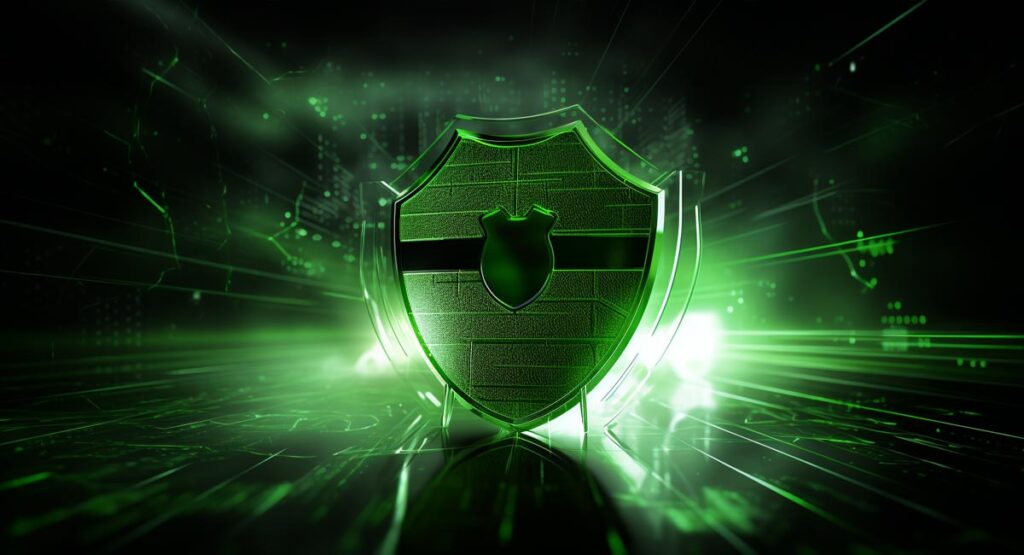In the age of digital transformation, the importance of cybersecurity cannot be overstated. As businesses and individuals become increasingly reliant on digital platforms, the potential threats and vulnerabilities they face have grown exponentially. This surge in cyber threats has led to a rising demand for skilled cybersecurity professionals. This article delves deep into the evolving trends in the cybersecurity career path. Whether you’re a student contemplating a career in this field, a professional looking to pivot, or simply someone interested in the dynamics of the cybersecurity job market, this piece will offer valuable insights. We will explore the various roles available, the skills required, and the trajectory of this ever-evolving field. Supported by statistics, research, and expert opinions, this article aims to provide a comprehensive understanding of where the cybersecurity career path is headed.
Cyber Security Career Path Trends
Table of Contents
- The Growing Demand for Cybersecurity Professionals
- Roles and Responsibilities
- Skills and Qualifications
- Career Advancement Opportunities
- Challenges in the Field
- Frequently Asked Questions
- Final Thoughts
- Sources
The Growing Demand for Cybersecurity Professionals
In today’s interconnected world, the significance of cybersecurity has never been more pronounced. The increasing number of cyber threats, ranging from data breaches to ransomware attacks, has highlighted the critical need for robust cybersecurity measures. As a result, the demand for skilled cybersecurity professionals has skyrocketed.
The Digital Transformation Drive
The last decade has witnessed an unprecedented digital transformation across industries. From healthcare to finance, sectors are leveraging technology to optimize operations, enhance customer experiences, and innovate. However, this digital shift has also expanded the attack surface for cybercriminals. With more devices connected to the internet and more data stored online, the potential points of vulnerability have multiplied.
The Cost of Cyber Attacks
Cyber attacks are not just about data theft. They can cripple businesses, erode customer trust, and result in significant financial losses. According to a study by Cybersecurity Ventures, the global cost of cybercrime is expected to reach $6 trillion annually by 2021, doubling from $3 trillion in 2015. This staggering figure underscores the importance of investing in cybersecurity.
The Talent Gap
Despite the clear need for cybersecurity measures, there is a significant talent gap in the industry. As mentioned earlier, Cybersecurity Ventures predicts 3.5 million unfilled cybersecurity jobs globally by 2021. This gap is not just about numbers; it’s about skills. The rapid evolution of cyber threats requires professionals who are not only well-versed in current technologies but are also prepared to adapt and learn as new threats emerge.
Government and Regulatory Focus
Governments worldwide are recognizing the importance of cybersecurity. Regulations like the General Data Protection Regulation (GDPR) in Europe and the California Consumer Privacy Act (CCPA) in the U.S. mandate stringent data protection measures. Non-compliance can result in hefty fines. This regulatory focus has further driven the demand for cybersecurity professionals who can ensure that organizations meet these standards.
The growing demand for cybersecurity professionals is a direct response to the increasing cyber threats in our digital age. With the stakes so high, organizations are actively seeking skilled individuals to protect their assets, data, and reputation. For those considering a career in this field, it offers not only job security but also an opportunity to be at the forefront of technological advancements and innovations.
Roles and Responsibilities
The cybersecurity landscape is vast and varied, necessitating a range of specialized roles to address the myriad challenges and threats that organizations face. Each role comes with its unique set of responsibilities, requiring specific skill sets and expertise. Here’s a deeper dive into some of the key roles within the cybersecurity domain:
1. Security Analyst
Responsibilities:
- Monitor organizational networks for any breaches or irregularities.
- Conduct vulnerability assessments using tools to detect potential threats.
- Analyze security breaches to determine their root cause.
- Recommend and implement enhancements to improve security.
2. Penetration Tester (Ethical Hacker)
Responsibilities:
- Simulate cyber-attacks on systems, networks, and applications to identify vulnerabilities.
- Use a variety of tools and techniques to test the security of an organization’s IT infrastructure.
- Provide feedback and recommendations on security weaknesses and how they can be addressed.
- Stay updated with the latest penetration testing tools and methodologies.
3. Security Architect
Responsibilities:
- Design robust security structures to protect IT infrastructure from cyber threats.
- Develop policies and procedures for securing data and systems.
- Ensure that the organization’s security solutions are implemented effectively and maintained.
- Collaborate with IT teams to ensure the secure integration of new software and hardware.
4. Incident Responder
Responsibilities:
- Act swiftly when a security breach is identified.
- Coordinate efforts to counteract and mitigate security incidents.
- Document incidents, their impact, and the measures taken to resolve them.
- Conduct post-incident analysis to prevent future breaches.
5. Security Software Developer
Responsibilities:
- Develop software solutions to defend against potential cyber threats.
- Integrate security into application development processes.
- Ensure that software is free from vulnerabilities that could be exploited.
- Update and patch software applications to address security vulnerabilities.
6. Security Consultant
Responsibilities:
- Provide expert advice to organizations on how to protect their IT infrastructures.
- Conduct security assessments and audits to identify vulnerabilities.
- Recommend security solutions and best practices.
- Train staff on security protocols and best practices.
7. Chief Information Security Officer (CISO)
Responsibilities:
- Oversee the overall security strategy of an organization.
- Develop and implement security policies and protocols.
- Coordinate with executive management on security initiatives and investments.
- Lead and mentor the cybersecurity team.
8. Forensic Computer Analyst
Responsibilities:
- Investigate computer-based crimes by analyzing computer systems and networks.
- Retrieve evidence from electronic devices for legal cases.
- Document findings in a manner suitable for court presentations.
- Work closely with law enforcement agencies during investigations.
The roles within the cybersecurity domain are diverse, reflecting the complexity of the challenges the industry faces. As cyber threats continue to evolve, so too will the roles and responsibilities of cybersecurity professionals. Those entering the field should be prepared for continuous learning and adaptation to stay ahead of the curve.
Skills and Qualifications
The cybersecurity domain is multifaceted, and professionals in this field need a diverse set of skills and qualifications to effectively combat the ever-evolving landscape of cyber threats. Here’s a comprehensive look at the essential skills and qualifications required:
1. Technical Skills
- Programming Knowledge: Familiarity with programming languages such as Python, C, C++, Java, and PHP can be crucial, especially for roles like security software developers and penetration testers.
- Understanding of Operating Systems: Proficiency in Windows, Linux, and Unix is essential, as these are the platforms most commonly targeted by cyber threats.
- Network Expertise: A deep understanding of network protocols, VPNs, firewalls, proxy services, DNS, email security, and IPsec is crucial for most cybersecurity roles.
- Malware Analysis and Reverse Engineering: The ability to dissect malware to understand its origin, functionality, and potential impact can be vital for threat analysts.
2. Analytical Skills
- Threat and Vulnerability Analysis: Identifying and analyzing potential threats and system vulnerabilities is a core aspect of many cybersecurity roles.
- Forensic Skills: For roles like forensic computer analysts, the ability to uncover and interpret electronic data is crucial. This skill is essential for investigations and legal cases.
- Risk Analysis: Evaluating and quantifying risks to help organizations prioritize their security efforts.
3. Soft Skills
- Problem-Solving: Cybersecurity is all about addressing and mitigating vulnerabilities and threats. A strong problem-solving mindset is essential.
- Attention to Detail: Small oversights can lead to significant security breaches. Professionals must be meticulous in their work.
- Communication Skills: Cybersecurity professionals often need to explain complex technical issues to non-technical stakeholders. Clear communication is crucial.
- Teamwork: Cybersecurity is a collaborative effort. Working well with others, from IT personnel to executive management, is vital.
4. Continuous Learning and Adaptability
The cyber landscape is dynamic, with new threats emerging regularly. Professionals must be committed to continuous learning and staying updated with the latest trends and threats.
5. Certifications
While not always mandatory, certifications can validate a professional’s skills and expertise in cybersecurity:
- Certified Information Systems Security Professional (CISSP): A globally recognized certification that covers critical security topics like risk management and network security.
- Certified Ethical Hacker (CEH): Validates a professional’s skills in finding vulnerabilities and weaknesses in systems, mimicking the methods of malicious hackers.
- Certified Information Security Manager (CISM): Focuses on managing and governing a company’s information security program.
- Certified Information Systems Auditor (CISA): Recognized globally for its standards in auditing, control, and assurance.
6. Education
While many roles in cybersecurity require a bachelor’s degree in computer science, IT, or a related field, the emphasis is often on skills, experience, and certifications. Some professionals also pursue master’s degrees in cybersecurity or MBA programs with a focus on information security.
A career in cybersecurity demands a blend of technical know-how, analytical prowess, and soft skills. Given the dynamic nature of cyber threats, continuous learning and adaptability are the hallmarks of successful professionals in this field. Those looking to excel should focus on building a robust skill set, complemented by relevant certifications and qualifications.
Career Advancement Opportunities
The cybersecurity field, with its ever-evolving challenges and increasing importance in the digital age, offers a plethora of opportunities for career growth and advancement. Professionals who start in entry-level positions can, with experience, dedication, and continuous learning, ascend to higher roles with more responsibilities and better remuneration. Here’s a detailed look at the career advancement opportunities in cybersecurity:
1. From Analyst to Specialist
Many cybersecurity professionals begin their careers as Security Analysts, monitoring networks and systems for security breaches. With experience and specialization in a particular area, they can advance to roles like Threat Intelligence Analyst or Malware Analyst, where they focus on specific types of threats or vulnerabilities.
2. Leadership Roles
After gaining substantial experience and demonstrating leadership qualities, professionals can move into managerial positions such as:
- Security Manager: Overseeing a team of analysts and ensuring that security protocols are effectively implemented.
- Director of Security: Directing and coordinating an organization’s overall security strategy and initiatives.
- Chief Information Security Officer (CISO): A C-level executive role responsible for the entire organization’s information and data security. The CISO collaborates with other top executives to align security initiatives with business goals.
3. Specialized Roles
With the right certifications and expertise, professionals can delve into specialized roles like:
- Penetration Tester: Moving from basic testing to leading teams or even setting up a consultancy to offer penetration testing services to various clients.
- Forensic Computer Analyst: Advancing to lead forensic teams in larger investigations or working with national or international law enforcement agencies.
4. Consultancy and Advisory
Experienced cybersecurity professionals often move into consultancy roles, advising multiple organizations on their security postures. This can be within a large consulting firm or as an independent consultant. They might also become Security Auditors, assessing and ensuring that organizations comply with security standards.
5. Research and Development
For those inclined towards innovation, roles in R&D in cybersecurity firms or tech companies can be pursued. Here, professionals work on developing new security tools, technologies, and methodologies to counteract emerging threats.
6. Training and Education
With a solid grasp of cybersecurity concepts and practices, professionals can transition into educational roles, teaching the next generation of cybersecurity experts. This could be in formal education settings, like universities, or by conducting specialized training sessions and workshops.
7. Entrepreneurship
The increasing demand for cybersecurity solutions offers entrepreneurial opportunities. Professionals can start their own cybersecurity firms, offering services like threat assessment, penetration testing, or consultancy. They might also develop cybersecurity products or software to address specific industry needs.
8. Continuous Learning and Certifications
Regardless of the specific career path, continuous learning is paramount in cybersecurity. Earning advanced certifications, attending workshops, and staying updated with industry trends can open doors to higher roles and specializations.
The cybersecurity domain, given its importance and complexity, offers a rich tapestry of career advancement opportunities. Whether it’s climbing the corporate ladder, specializing in a niche area, or branching out independently, the possibilities are vast for those willing to learn, adapt, and innovate.
Challenges in the Field
The cybersecurity domain, while offering numerous opportunities and rewards, is not without its challenges. As the digital landscape continues to evolve, professionals in this field face a myriad of obstacles that require resilience, adaptability, and continuous learning. Here’s a detailed exploration of the challenges in the cybersecurity field:
1. Rapid Technological Changes
The pace of technological advancement is staggering. With the introduction of new technologies like the Internet of Things (IoT), 5G, and cloud computing, the attack surface for cybercriminals is constantly expanding. Adapting to these changes and ensuring security measures are up-to-date is a relentless task.
2. Sophistication of Cyber Attacks
Modern cyber threats are not just more frequent; they are also more sophisticated. Advanced Persistent Threats (APTs), state-sponsored attacks, and polymorphic malware present complex challenges that require advanced detection and mitigation strategies.
3. Skill Shortage
As previously mentioned, there’s a significant talent gap in the cybersecurity industry. The demand for skilled professionals far outstrips the supply, leading to understaffed security teams and increased pressure on existing personnel.
4. Keeping Up with Regulatory Changes
Governments and international bodies are continuously updating and introducing new regulations to protect data and ensure privacy. Professionals need to stay updated with these changes to ensure compliance, which can be especially challenging for global organizations subject to multiple regulatory environments.
5. Balancing Usability and Security
There’s often a trade-off between security and usability. Implementing stringent security measures can hinder user experience or operational efficiency. Striking the right balance is a persistent challenge.
6. Insider Threats
Not all security threats come from external actors. Insider threats, whether malicious or due to negligence, can be harder to detect and prevent. Building a security culture and monitoring internal activities without infringing on privacy rights is a delicate task.
7. Budgetary Constraints
While the importance of cybersecurity is widely acknowledged, security professionals often face challenges in securing adequate funding for their initiatives. Making a case for investments in security, especially in the absence of a recent breach, can be difficult.
8. Evolving Role of Privacy
With increasing awareness about data privacy rights and regulations like GDPR, cybersecurity professionals also need to ensure that security measures respect user privacy. This adds another layer of complexity to their roles.
9. High Stress and Burnout
Given the high stakes, the role of a cybersecurity professional is inherently stressful. The constant threat of breaches, combined with the responsibility of safeguarding an organization’s assets, can lead to burnout if not managed properly.
10. Continuous Learning Pressure
The dynamic nature of cyber threats means that professionals cannot rest on their laurels. There’s a constant pressure to upskill, reskill, and stay updated with the latest in the field.
While the challenges in the cybersecurity field are numerous and daunting, they also offer opportunities for growth, innovation, and differentiation. Professionals who can navigate these challenges, adapt to the ever-changing landscape, and continuously enhance their skills will not only thrive in their careers but also play a pivotal role in shaping the future of digital security.
Frequently Asked Questions
Final Thoughts
The cybersecurity field is dynamic, challenging, and rewarding. As cyber threats continue to evolve, the need for skilled professionals in this domain will only grow. The most crucial takeaway is the importance of continuous learning and adaptability in this field. Those willing to stay updated and adapt will find numerous opportunities for growth and advancement.
Sources
I write for and assist as the editor-in-chief here on Host Screamer. I’m a digital entrepreneur since 1992. Always Keep Learning! Notice: All content is published for educational and entertainment purposes only. NOT LIFE, HEALTH, SURVIVAL, FINANCIAL, BUSINESS, LEGAL OR ANY OTHER ADVICE. Learn more about Mark Mayo



